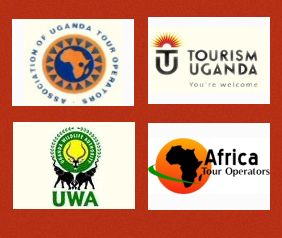Mountain gorilla numbers increases
A Ugandan survey found that the population has risen from 786 in 2010 to 880 today, due to conservation efforts
The world’s population of mountain gorillas has increased by more than 10% in two years, new census figures show.
A survey carried out in Uganda’s Bwindi Impenetrable national park and released by the Ugandan Wildlife Authority has found that numbers of the critically endangered species, Gorilla beringei beringei, have risen from an estimated 786 in 2010 to 880 today.
Threats to the mountain gorilla – including war, habitat destruction and disease – were once thought to be so severe that the species could become extinct by the end of the 20th century, but the population has increased significantly in the last 30 years.
Drew McVey, species programme manager at WWF-UK, who supported the census as part of the International Gorilla Conservation Programme, said he believed the latest increase was due to conservation efforts that had successfully engaged the local community.
“Mountain gorillas have only survived because of conservation. This has increased uganda safaris for gorilla safaris,Protected areas are better managed and resourced than they have ever been, and our work is a lot more cross-cutting to address threats – we don’t just work with the animals in the national parks, but also with the people.”
McVey said conservation now balanced species survival against the needs of an incredibly poor area with high population pressures, for example, tackling the loss of gorilla habitat due to the illegal collection of firewood by providing the community with access to alternative energy sources.
Mountain gorillas, a subspecies of the eastern lowland gorilla, live in mountain forests in only two locations in the world – Bwindi in south-west Uganda and the Virunga Massif, a range of extinct volcanoes that border the Democratic Republic of the Congo, Uganda and Rwanda.
According to the census report, there are more than 400 mountain gorillas in Bwindi, living in 36 distinct social groups, with 16 solitary males. Ten of these social groups are accustomed to human presence for either tourism or research. A 2010 survey counted 480 individuals in Virunga Massif.
“Gorillas are slow breeders,” McVey said. “And we’re quite impressed with how much the population has increased.”
But McVey said this should not be read as a sign that the fight to save the species is over. “Mountain gorillas are only found in protected areas, and outside these areas there are more than 600 people per square kilometre, so there is immense pressure to secure their habitat and pay their way. We haven’t got everything right yet, but it’s vital we continue to keep working and build on this success.”
The census itself was an exercise in collaboration, with IGCP playing a lead role in attracting support for the census and coordinating all participating institutions and organisations.
While the incredible increase in this population of mountain gorillas is clearly a cause for celebration, the threats to their existence are persistent. A recent patrol discovered and destroyed just over 200 snares in the Virunga Massif. Although poachers typically do not target mountain gorillas the snares pose a threat nonetheless.
“We are proud of the contribution we have made to the conservation of mountain gorillas over the last 20 years and we continue to vigilantly support transboundary collaboration and those on the front lines in the parks and surrounding communities,” said Eugene Rutagarama, Director of IGCP.
“Collectively, we cannot let down our guard on the conservation of these incredible animals. While mountain gorillas are physically strong, they are also incredibly vulnerable.”
The International Gorilla Conservation Programme is a coalition of AWF, WWF and Fauna & Flora International.
Further funds are urgently needed to carry on with essential conservation activities for mountain gorillas. You can donate to IGCP via their website.
You can find out more information on the census by visiting the IGCP website.

